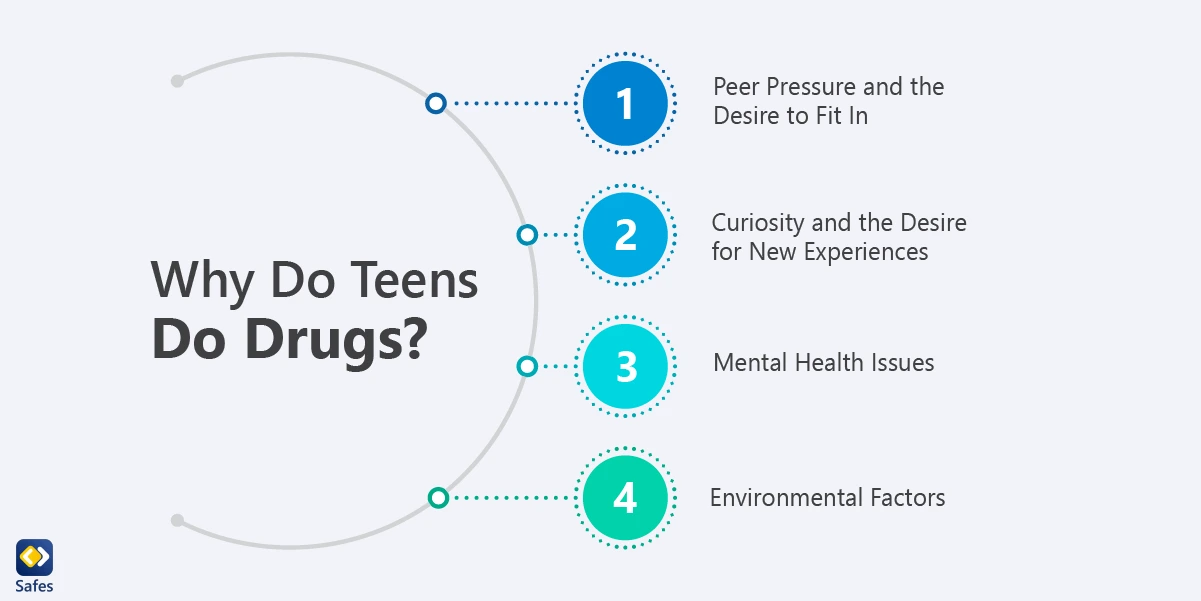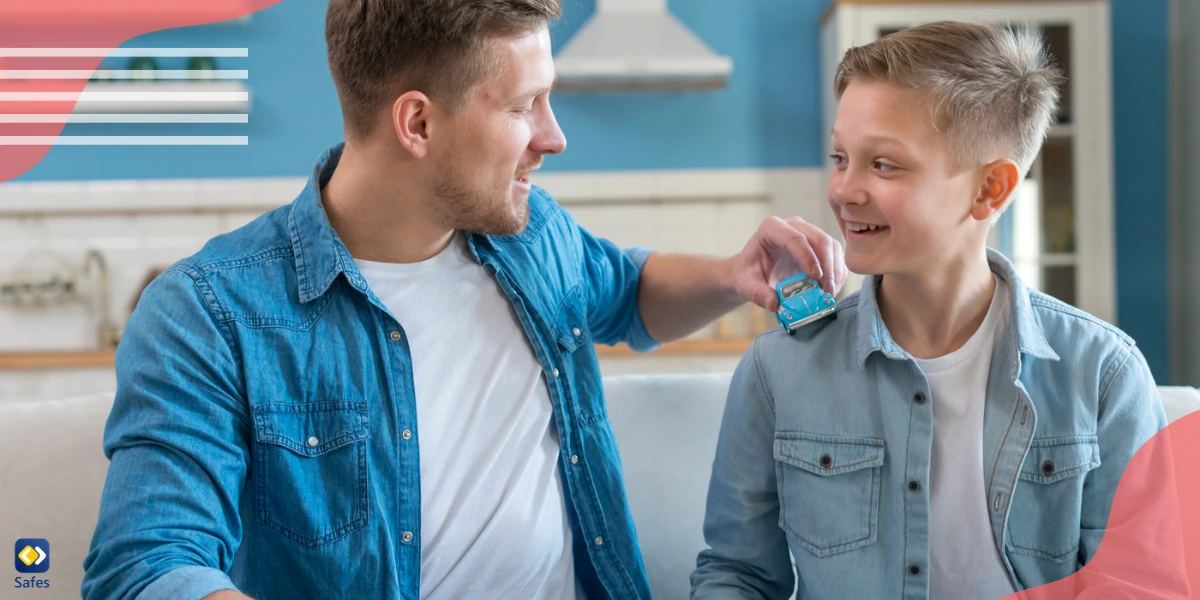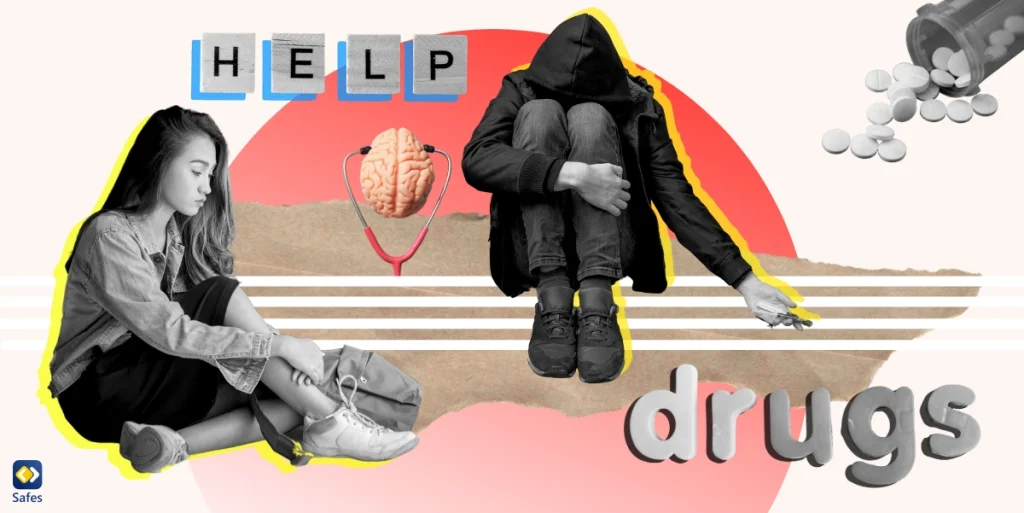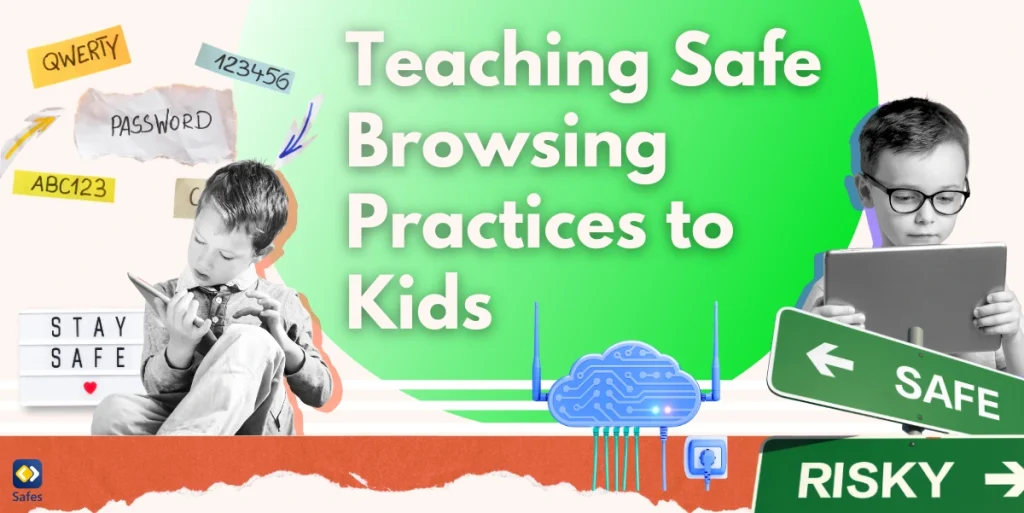Teenagers are known for their curiosity and desire to explore new experiences. However, these characteristics can sometimes lead them down a dangerous path, including drug use. As parents, understanding why teens do drugs can help us provide the necessary support and guidance our teenagers need during these crucial years. This article aims to delve into the complexities behind why teens engage in drug use and provide insights into how parents can address this sensitive issue effectively.
Download and Start Your Free Trial of the Safes Parental Control App
Understanding the Teenage Brain
The first step in understanding why teens do drugs is recognizing the unique characteristics of the teenage brain. During adolescence, the brain undergoes significant changes, impacting teenagers’ decision-making and risk-taking behaviors.
The teenage brain is in a constant state of development, with the prefrontal cortex –the area responsible for decision-making and impulse control– being the last part to mature. This biological factor can make teenagers more susceptible to risky behaviors, including substance use.
Why Do Teens Do Drugs?
Several factors can contribute to why teens do drugs. Understanding these can help parents and caregivers identify potential triggers and intervene where necessary.

Peer Pressure and the Desire to Fit In
Teenagers are highly influenced by their peers and their desire to fit in. If they are surrounded by friends who use drugs, they may feel compelled to do the same to maintain their social status or feel a sense of belonging.
Curiosity and the Desire for New Experiences
Teenagers are naturally curious and eager to experiment with new experiences, including the use of drugs. They might be enticed by the prospect of the “high” that drugs can provide or the perceived maturity that comes with substance use.
Mental Health Issues
Teens struggling with mental health problems such as anxiety, depression, or ADHD may turn to drugs as a form of self-medication. While this may provide temporary relief, it can lead to addiction and exacerbate their existing mental health issues.
Environmental Factors
Teens growing up in environments where drug use is common may view it as a normal part of life. This normalization of drug use can significantly influence their attitudes toward drugs.
Signs and Symptoms of Drug Use
Recognizing the signs of drug use can be challenging, as many symptoms can also be attributed to typical teenage behavior or other health issues. However, certain signs may indicate a potential substance use disorder:
- Sudden changes in mood or behavior
- Decline in academic performance
- Changes in social circles
- Neglecting responsibilities
- Unexplained money problems
- Physical signs such as bloodshot eyes, unexplained weight loss or gain, and deterioration in personal grooming habits
If you notice any of these signs, it’s essential to approach the situation with care and sensitivity. Accusations or confrontations may push your teen further away.

How to Talk to Your Teen About Drugs
Having open and honest conversations about drugs can help your teen make informed decisions and feel comfortable seeking your advice if they’re ever in a risky situation. Here are some tips on how to talk to teenagers about drugs:
Choose the Right Time and Place
Find a quiet, comfortable setting where you can talk without interruption. Make sure your teen feels safe and comfortable.
Listen More, Lecture Less
Encourage your teen to share their thoughts and feelings about drugs. Listen attentively and respond with empathy, even if you don’t agree with their perspective.
Share Facts, Not Fear
Provide your teen with accurate information about the risks and effects of drug use and reasons not to do drugs. Avoid scare tactics, which can be ineffective and may even increase curiosity about drugs.
Discuss Ways to Say No
Help your teen develop strategies for refusing drugs. Role-playing different scenarios can be a practical way to prepare them for real-life situations.
Helping Your Teen Say No to Drugs
Empowering your teen with the right tools and confidence can help them resist the temptation to use drugs. Here are some strategies:
- Encourage participation in positive activities like sports, clubs, or hobbies, which can provide a healthy outlet for their energy and curiosity.
- Nurture open communication, letting them know they can talk to you about anything without fear of judgment or punishment.
- Set clear rules about drug use and enforce them consistently.
- Get to know their friends and their friends’ parents. Encourage your teen to invite their friends to your home where you can observe their behavior.

Knowing When to Seek Professional Help
If you suspect your teen is struggling with substance abuse, it’s crucial to seek professional help. Substance use disorders can have severe long-term consequences, and professional treatment can provide your teen with the tools they need to recover.
Here are some of the resources you can refer to if your child is struggling with drug abuse:
Substance Abuse and Mental Health Services Administration (SAMHSA): SAMHSA offers a national helpline (1-800-662-HELP) that provides information and treatment referral services for individuals and families facing substance abuse and mental health disorders.
National Institute on Drug Abuse (NIDA): NIDA provides resources, research, and information on drug abuse prevention and treatment. Their website offers educational materials, publications, and links to treatment centers.
Local Counseling Centers: Seek local counseling centers that specialize in addiction and substance abuse treatment for children. They have trained professionals who can assess the situation and provide appropriate treatment options.
Pediatricians and Family Doctors: Consult with your child’s pediatrician or family doctor for guidance and referrals. They can assess the situation, provide medical advice, and refer you to specialists or treatment centers.
Mental Health Professionals: Psychologists, therapists, and counselors specializing in substance abuse can provide therapy and counseling services tailored to children’s needs.
The Role of Schools in Preventing Drug Use
Schools can play a crucial role in preventing drug use by providing students with accurate information about drugs and fostering a safe and supportive environment. Parents can collaborate with schools to ensure these measures are in place.
How Parental Control Apps Can Help
Parental control apps like Safes can be a useful tool in preventing teenage drug use. These apps allow parents to monitor their children’s online activities, providing them with insights into their social interactions and exposure to drug-related content. Moreover, by allowing you to monitor and manage your child’s screen time, Safes can help your child avoid falling victim to screen addiction.
Feel free to try Safes to protect your child by downloading it from our website or common app distribution platforms like Google Play and App Store.
Find out more about setting up parental controls on your child’s devices using the following resources:
- Windows parental controls
- Macbook parental controls
- Android parental controls
- iPhone parental controls
Concerned about why teens turn to drugs? Sign up for a free trial of Safes to get access to resources and support that can help you understand and address this critical issue.
Concluding “Why Do Teens Use Drugs?”
Understanding why teens do drugs is the first step in helping them navigate these challenging years. By fostering open communication, providing factual information about drugs, and offering unwavering support, parents can play a crucial role in preventing teenage drug use.
You don’t need to control every aspect of your teen’s life but equipping them with the knowledge and tools they need to make informed decisions. If your teen is struggling with substance use, don’t hesitate to seek professional help. It’s never too late to start the conversation and make a positive change.
Your Child’s Online Safety Starts Here
Every parent today needs a solution to manage screen time and keep their child safe online.
Without the right tools, digital risks and excessive screen time can impact children's well-being. Safes helps parents set healthy boundaries, monitor activity, and protect kids from online dangers—all with an easy-to-use app.
Take control of your child’s digital world. Learn more about Safes or download the app to start your free trial today!




